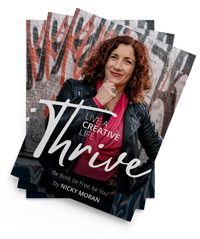When I was travelling in Israel recently, a taxi driver said to me: “In Israel, we are known to be rude. The thing is, we just don’t care what people think of us. We say what we mean and we don’t hold back. We’re direct and if people like us, fine, if they don’t, who cares?”
I sat there and smiled. This was a lesson I had learned more than 20 years ago when I travelled to Israel as a backpacker and worked in a kibbutz.
I was brought up in a middle-class family in the north of England, so being polite was the norm in my world. Saying please, thank you and sorry punctuated my language and being smiley and friendly was an expected behaviour.
But when I arrived in Israel, I was confronted by a radically different worldview. I remember going into a shop and the owner was so hostile that I wondered what I’d done to upset him. Wherever I went, people seemed to argue with each other. Passionate discussions erupted on the bus, on the beach and in the supermarket.
For a long time, I suffered. My normal strategies didn’t work there. In fact, one day, when I was working as a waitress at a beach bar in Tel Aviv, a girl called Esta said to me: “Nicky, when you smile so much, people think you’re stupid.” The truth was, my smile was often a strategy to be liked. In Israel, people saw through it.
I lived in Israel for a year and gradually I learnt to appreciate that this is one of the most honest places on earth. Politics aside, the flipside of their brutal honesty is passion, liberation and deep connection. I discovered that once an Israeli becomes your friend, they are friends for life. I was offered a place to stay when I had my money stolen, was given heartfelt advice when my father was ill, and was taught that I didn’t need alcohol to dance with abandon. Over time, I learnt to let go of my British reserve and become more direct, expressed and essentially much happier.
I returned the UK with more fire in my belly. I believe that my time in Israel gave me the courage to do so much more in life. I asked for the jobs I wanted, stood up for what I believed and didn’t waste time trying to fit in.
However – although this helped me to power through the dark times and find the courage to go for what I wanted, my upbringing still felt like a shackle when I had to promote myself and my business.
My need to be please still crept in. Instead of radical honesty, I would try hard and obsess over whether I was interesting or relevant. Video blogs remained unfinished on my laptop and strong views would be sanitised with ‘top tips’.
I wish I’d had my taxi driver mentor on my shoulder to remind myself to ‘say what I mean and don’t hold back’.
I’ve also observed this in my students. I’m currently running the Storytelling for Self-Promotion course with my partner Bev. We’ve noticed how deep and powerful the impact has been. People are discovering new insights about themselves through stories from their lives that have shaped their worldview.
But we’ve also had members of the group who are too fearful to share their story, don’t feel ready, or don’t think they’re relevant or interesting. Self-promotion tends to bring out our self-critic and the biggest fear of all is often the fear of being judged.
I can’t force people to ‘say what they mean and don’t hold back’ as I know it’s a journey that we all need to go on to find our own path.
But what I can do is be a role model for what I think is needed if you want to become a creative person who has impact.
I believe that politeness, people-pleasing and fitting in are fine strategies if you don’t want to upset anyone. But I believe that to live a life where you have real impact, it’s better to cultivate your own truth and stand up for what YOU believe. I don’t believe that this is about being rude, I believe that this is more likely to serve others.
As I sat in the taxi with my Israeli mentor, I made a quiet commitment to myself. When I was 21 I learnt to be more direct and straightforward. I learnt that honesty is the route to connection. If I can stop caring what people think and instead care about sharing what I think, then I’ll probably add more value anyway.
So I commit to going back to that radical girl who learnt not to smile to fit in. I commit to being more radically honest – in blogs, as a coach and in life.
And I encourage you to start daring to be more open, share what you think and channel this into your self-promotion.






